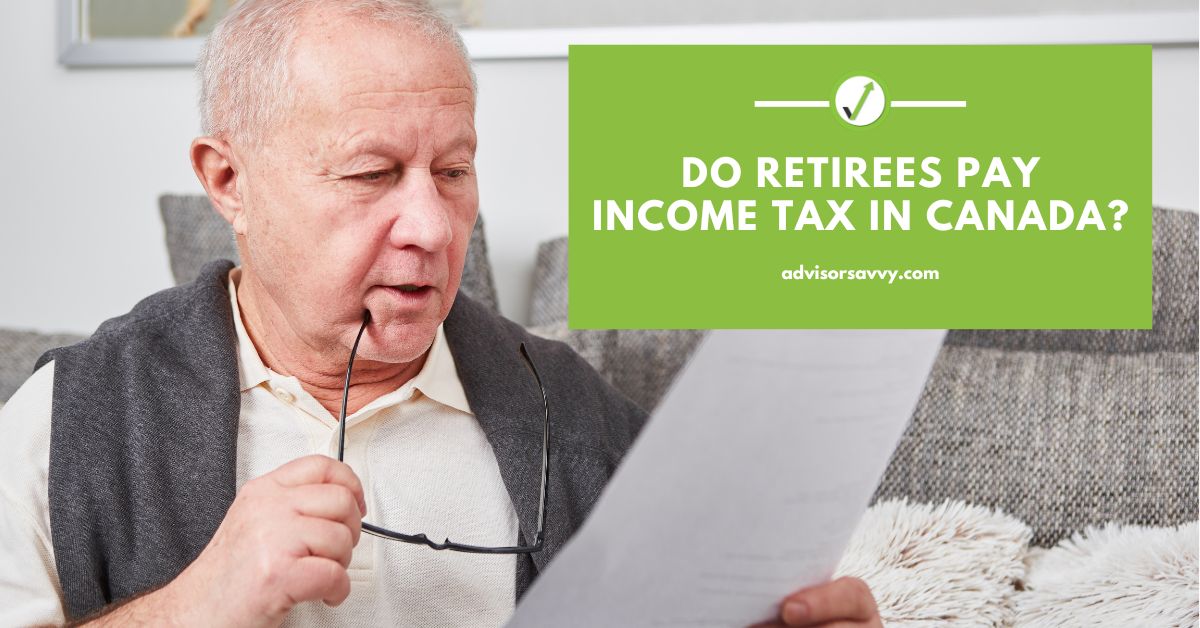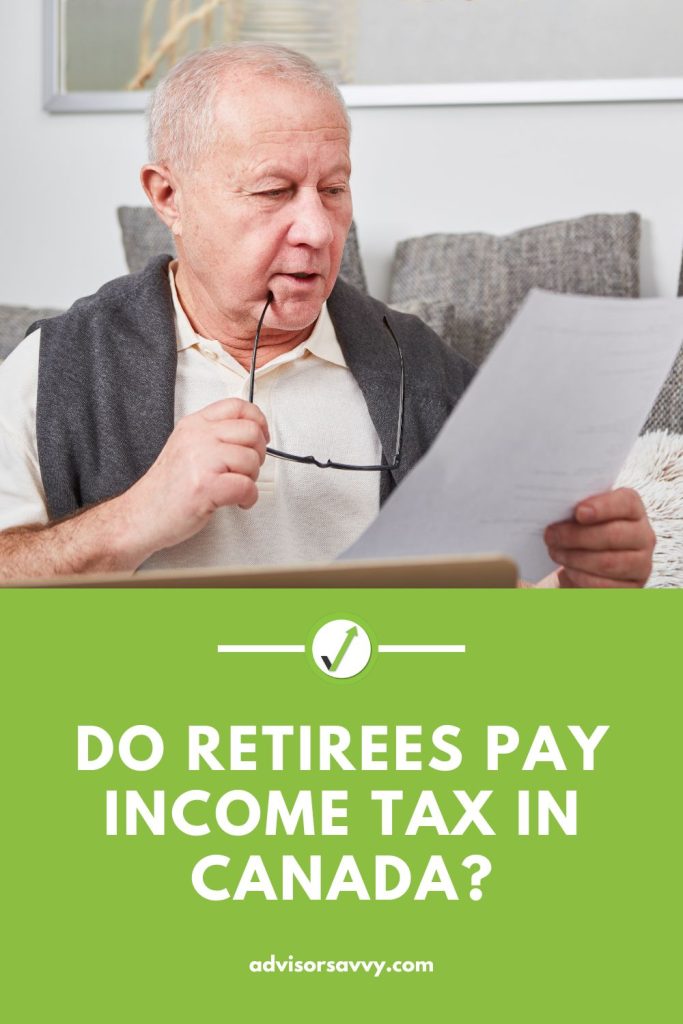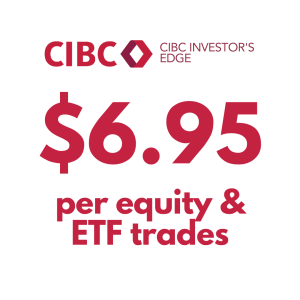
In Canada, retirees are subject to income tax. The amount they pay is dependent on the types of income they receive, their tax bracket and province or territory of residence. Retirement income from sources like pensions, Registered Retirement Savings Plans (RRSPs), Registered Retirement Income Funds (RRIFs), employment earnings, investments, and other income streams are typically taxable. However, tax credits and deductions for seniors help reduce the overall tax burden. It’s always a good idea to consult with a financial advisor or tax professional when navigating income and corresponding tax. They can provide tailored advice based on individual circumstances. But for now, we will answer the question, “Do retirees pay income tax in Canada?” in depth below. Keep reading to learn more!

Table of contents
- Do seniors have to file taxes in Canada?
- How much income tax do retirees pay?
- How much income is tax-free in Canada for seniors?
- What kind of income do retirees have to pay tax on?
- Do you pay taxes on your RRSP after 65?
- Do retirees pay less income tax?
- How can I reduce my taxes in retirement in Canada?
- Do retirees pay income tax?
Do seniors have to file taxes in Canada?
Seniors in Canada, like all other citizens and residents, must file taxes, if they meet certain criteria. If they have earned income in Canada, they are required to file a tax return. Whether that income is from Old Age Security (OAS), Guaranteed Income Supplement (GIS), Canada Pension Plan (CPP), or any other source, they are required to report it and pay applicable tax.

Match to your perfect advisor now.
Getting started is easy, fast and free.
Further, filing a tax return may be necessary to determine eligibility or to continue receiving certain benefits, credits, and deductions offered by the Canadian government. In addition, anyone who’s a resident of Canada, including seniors, must file a tax return, even if their income was $0.
Even if a senior’s income is below the basic personal amount, they should still file their taxes. Filing a tax return can be beneficial for a number of reasons. It allows individuals to claim tax credits, access benefit programs, and receive refundable tax credits. Plus, it’s just good housekeeping to stay on top of your taxes!
How much income tax do retirees pay?
There isn’t a fixed percentage or amount of income tax that retirees pay. Rather, it depends on the individual’s specific financial situation. For instance, the amount of income earned, tax bracket, available deductions, and the province or territory of residence all affects how much a taxpayer owes.
Consulting with a tax professional or using tax software can be useful. It helps to determine how much tax needs to be paid while accounting for specific circumstances. In addition, you might find additional credits and deductions to reduce your overall tax bill.
The income tax that retirees pay in Canada varies widely based on several factors, listed below:
Income Sources
Different types of retirement income are taxed at different rates. Some income sources often earned in retirement include pensions, RRSPs, RRIFs, investment income, and employment earnings. Employment earnings are typically taxed at the individual’s marginal tax rate. But on the other hand, certain types of investment income are usually subject to greater taxation, such as capital gains tax. The type of income earned will affect the final tax balance.
Tax Brackets
Canada has a progressive tax system. This means the more income an individual earns, the higher the tax rate they pay on the additional income, as opposed to a flat rate. There are federal and provincial/territorial tax brackets. All Canadians pay the same rates for federal tax, but the provincial and territorial rates vary.
Tax Credits and Deductions
Seniors are normally eligible for various tax credits and deductions. These are designed to reduce their overall tax burden. Credits like the age amount, pension income amount, medical expenses, and others are worth exploring to keep your tax bill low.
Related Reading: Marginal Tax vs Average Tax: Understanding Canadian Tax Brackets
How much income is tax-free in Canada for seniors?
In Canada, there’s a basic personal amount that is tax-free for everyone, including seniors. The basic personal amount represents the income level for which no federal income tax is owed. In other words, you can earn up to $15,000 in 2023, free of tax. Any money earned above that threshold is subject to tax. It is adjusted annually for inflation.
For federal taxes, the basic personal amount reduces the amount of income that is subject to federal tax. As of the 2023 tax year, the federal basic personal amount is $15,000. In 2021, it was $13,808 and in 2022 it was $14,398, for comparison. If your income is at or below this threshold, you won’t owe federal income tax.
CIBC Investor’s Line Offer
Up to $6.95 per online stock or ETF trade. Plus, there’s no minimum account balance.
Provinces and territories in Canada have their own basic personal amounts too. These amounts vary across the nation. Depending on the province you live in and their basic personal amount, seniors may not need to pay provincial taxes either.
As mentioned, seniors are eligible for certain tax credits and deductions. Which further reduces their taxable income and tax liability. It’s essential to consider both federal and provincial/territorial basic personal amounts. From there, you can assess eligibility for tax credits. All this information will determine the tax-free income threshold for seniors in Canada.
Related Reading: Tax Season In Canada: What You Need To Know For 2024
What kind of income do retirees have to pay tax on?
Retirees in Canada often have various sources of income. Different types of income are subject to different taxation. As such, retirees should also consult with tax professionals and financial advisors if they’re unsure of the tax treatment. Some of the common types of income that retirees might receive and are taxable include:
Employment Income
Some retirees continue to work part-time, take on casual positions, or engage in contract work. This can be part-time or full-time employment. Income earned from these sources is taxable. Fortunately, source deductions often apply which reduces your tax burden at the end of the year.
Pensions
Many retirees have pensions from their employers. All income received from a pension is generally taxable. These can include employer-sponsored pensions, government pensions like the Canada Pension Plan (CPP), and foreign pensions. Old Age Security (OAS) is also taxable income.
Registered Retirement Savings Plans (RRSPs)
With an RRSP, the tax is deferred up to the point where you make a withdrawal. Therefore, withdrawals from RRSPs are considered taxable income. From there, it becomes subject to taxation at their marginal tax rate. RRSP withdrawals can be manipulated to control which tax bracket you fall. By staying in a low tax bracket, you will pay less tax.
Registered Retirement Income Funds (RRIFs)
Like RRSPs, income withdrawn from RRIFs is taxable. The tax is deferred until the point of withdrawal.
Rental Income
If retirees own rental properties, or receive rental income, that income is taxable. It is usually considered business income generated from self-employment. This means you can deduct applicable expenses against the income to reduce your tax burden, such as the cost of utilities and repairs.
Royalties
If a retiree earns any royalties from licensing or intellectual property, that income is taxable.
Annuities
Payments received from annuities are typically taxable. Annuities are purchased from an insurance company and paid out to retirees.
Investment Income
Income generated from investments is taxable. This can include interest, dividends, and capital gains from the sale of assets. Foreign investment income is usually taxable as well.
Related Reading: Dividend Tax Credit
Do you pay taxes on your RRSP after 65?
Yes, RRSP withdrawals are taxable, regardless of age. When you withdraw funds from an RRSP, it’s considered taxable income due to the tax deferral nature of the RRSP. This includes when it is withdrawn after the age of 65 to supplement income in retirement. However, retirees pay for withdrawal from RRSPs at lower tax rates. Fortunately, there are specific retirement income options available after 65 that help manage the tax impact, as follows:
RRIF Conversion
At age 71, RRSPs must be converted into RRIFs (Registered Retirement Income Funds) or annuities. With RRIFs, you’re required to withdraw a minimum amount annually. These withdrawals from RRIFs are considered retirement income and are subject to taxation.
Tax Deferral
Contributions to RRSPs are made with pre-tax dollars. Whenever you contribute, you can claim the RRSP tax deduction. Then, your contributions grow tax-deferred until withdrawal. However, the tax is deferred, not exempted as seen with the Tax-Free Savings Account (TFSA). When you withdraw funds from an RRSP or RRIF, income tax must be paid on those withdrawals.
It’s important to plan withdrawals from RRSPs/RRIFs strategically to manage the tax impact. This includes spacing out withdrawals over time to minimize the tax burden and remain in a low tax bracket. Tax planning should be used for RRSPs/RRIFs withdrawal for this reason.
Related Reading: TFSA vs RRSP: Where To Put Your Money
Do retirees pay less income tax?
Retirees can experience varied tax situations compared to when they were working. This often results in paying less income tax. Although, this is usually because they’re earning less. In general, retirees have reduced income, more tax credits and deductions, and can split certain income with a spouse, all leading to lower taxes. It’s not that they receive preferential treatment in the tax system.
However, this is not a guarantee for all retirees. Some retirees may have the same or more income in retirement compared to when they working. For instance, those who earn rental income or passively operate a business they own. Ultimately, how much tax an individual pays depends on many factors, regardless of retirement status.
Related Reading: Top 10 Retirement Planning Tips For Canadians
How can I reduce my taxes in retirement in Canada?
Reducing taxes in retirement in Canada involves strategic planning. This process is known as tax planning. Various tax efficient retirement withdrawal strategies are at your disposal. Here are some ways retirees can potentially lower their tax burden:
Optimize Tax-Advantaged Accounts
- Tax-Free Savings Accounts (TFSA): Withdrawals from TFSAs are tax-free. In addition, investment income earned in a TFSA is tax-free. Maximize contributions to TFSA accounts to generate tax-free income in retirement.
- Registered Retirement Savings Plans (RRSPs) and Registered Retirement Income Fund (RRIFs): While withdrawals from RRSPs and RRIFs are taxable, tax planning can help control tax liability. This is because you can control your total annual income through these withdrawals, thereby controlling your tax bracket. The lower your tax bracket, the better!
- Other tax-advantaged accounts: In Canada, we are fortunate to have access to various powerful financial tools. TFSAs and RRSPs are generally available to everyone, but you might also have access to other specialized tax-advantaged accounts, such as the Registered Disability Savings Plan. Be sure to review your eligibility for these accounts and optimize your use of them to aide your retirement.
Related Reading: Types of Investment Accounts in Canada
Income Splitting
Married and common-law couples can split pension income with their partner. This process can reduce the household’s overall tax burden by transferring income to the lower-income partner’s return.
Maximize Tax Credits and Deductions
Take advantage of tax credits and deductions available to retirees and seniors. These credits and deductions include the age amount tax credit, pension income amount, medical expenses, and charitable donations, among others.
Consider Asset Location
Asset location is the process of optimizing tax liabilities by strategically placing investments in the most favorable accounts based on the characteristics of the asset. For instance, investments generating interest income might be better held in tax deferred and sheltered accounts. While investments generating capital gains or dividends might be more suitable for taxable accounts. This process can enhance your tax efficiency.
Timing of Government Benefits
Plan the timing of government benefits like CPP (Canada Pension Plan) and OAS (Old Age Security). Be sure to consider the roll up to your total annual income as well, amidst other income sources. Lastly, minimize the impact of the OAS clawback by keeping your income below the set threshold.
Do retirees pay income tax?
Yes, retirees in Canada are subject to paying income tax. This can be on any source of income they receive during retirement, from rental income to investment earnings to royalties. However, retirees usually end up paying less tax since they are earning less. The amount of income tax a retiree pays depends on their unique circumstances.
If you’re unsure of how your income will be taxed in retirement, or have any other questions about your taxes, a financial advisor can help. Complete this quick questionnaire to be matched with a professional!

